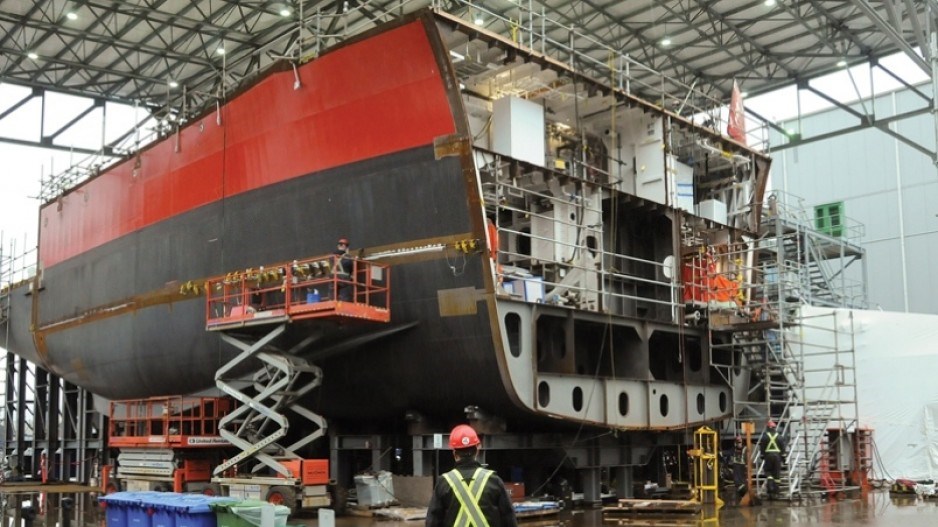Vancouver Shipyards Co. Ltd. is suing one of its subcontractors that did early design and engineering work on electrical, heat and ventilation, and propulsion control systems for its three federal fisheries vessels.
In the lawsuit, launched January 23 in BC Supreme Court, Vancouver Shipyards claims work done by Imtech Marine Canada Inc. on the first of three ships built under the national shipbuilding strategy was substandard, and led to “inaccurate, untrue and misleading” cost estimates. Those estimates affected the shipyard’s contract negotiations with the federal government, according to the lawsuit.
As a result, the shipyard suffered financial losses including additional engineering, design, material and equipment costs, according to the statement of claim.
Imtech Marine has denied the allegations in a statement of defence and stated that any technical difficulties experienced by the shipyard were due to Vancouver Shipyards’ “own experience, lack of organization and lack of experience with respect to large vessel production projects.”
The lawsuit centres on work done by Imtech as Seaspan, the parent company of Vancouver Shipyards, first started work on the three federal fisheries vessels, beginning in 2013.
At the time, Imtech was one of the top-tier subcontractors working with Seaspan on the non-combat ships for the national shipbuilding program.
Imtech was responsible for engineering the systems that power and operate the ship’s electrical propulsion, heating, ventilation and air conditioning systems, and on-board electrical systems. The company was also involved in installing those systems.
According to the lawsuit, Vancouver Shipyards signed a contract with the federal government on Feb. 21, 2013, followed by a subcontract with Imtech less than a month later. A year later, at the end of April 2014, the shipyard signed another contract with Imtech allowing the company to buy certain equipment needed for the ships.
According to the shipyard’s lawsuit, Imtech agreed to provide a “substantive cost estimate” among other services. Those estimates were to be prepared in accordance with classification society standards and Transport Canada requirements, according to the lawsuit.
Imtech failed to provide that with the degree of skill and care it should have, failed to provide proper quality assurance and failed to detect errors, all according to the lawsuit.
Imtech has denied that and said it “properly performed its obligations to an appropriate standard of care.” In its statement of defence, Imtech said any technical problems experienced by the shipyard were due to Seaspan’s own “failure to provide information and work product in order to allow (Imtech) to perform its obligations under the agreements.”
None of the allegations have been proven in court.
The lawsuit has been launched at a time when Seaspan is scrambling to fill gaps in its production schedule and avoid further layoffs caused by delays in the design and engineering on a fourth ship, an oceanographic science vessel.
Seaspan won the right to negotiate contracts with Ottawa to build a series of large non-combat vessels in 2011, under a program intended to provide steady work for the shipyard industry.
The three federal fisheries vessels are being built under a $514 million fixed-term contract with the federal government.




